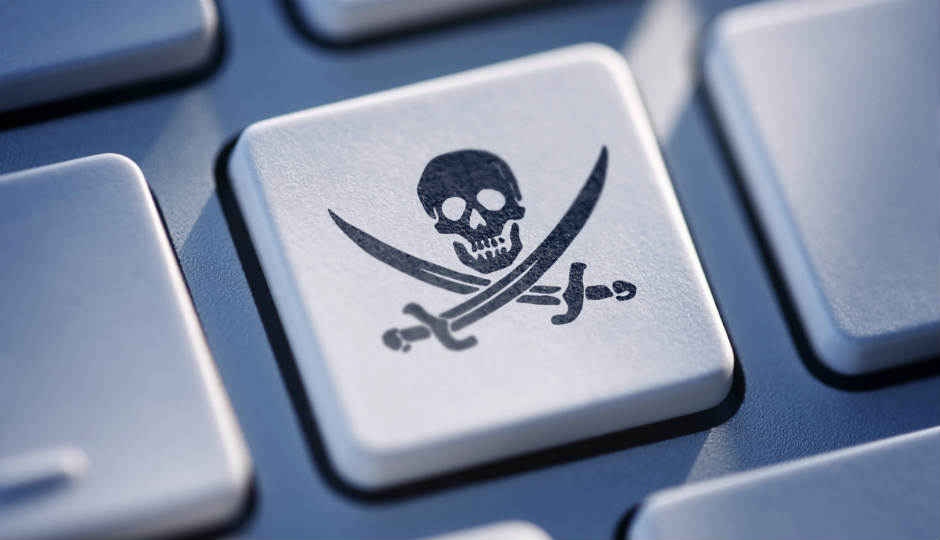A fine line

Bet you never thought about piracy this way
The past few months there’s been a buzz about piracy, censorship, government control and monitoring what people do online. Torrent sites are being shut down left, right and centre, people are being arrested and ISPs are being told to block content. More and more movie houses are approaching the courts to seek broad blocking orders in the name of John Doe (the public at large, or unknown persons). If all goes well for the powers that be, piracy may soon die a final and horrible death.
I think this is a good thing, and no, I’m not some money-grubbing, MPAA-sympathiser looking to protect the rights of the “poor” movie and music stars. I’m quite the opposite. I actually believe that we should give these people enough rope and let them hang themselves. Let me explain.
Software companies have known for years that piracy helps them a lot more than it hurts them, and there’s a fine line between being greedy and being so greedy that you dry up your business. At the height of the Microsoft dominance all we ever heard about from a small group was Linux, and why it was better. Why pay, when you can get the same features for free? Why use Adobe Photoshop when GIMP does pretty much the same job for the average Photoshopper. Of course a professional would prefer Photoshop because of the hundreds of things Adobe has built specifically with them in mind, but do I ever need that level of sophistication when all I’m doing is cropping and mildly colour-correcting family pictures for Facebook? Obviously not. I’m lucky to have it provided to me by my office, but let’s just say I used the “free” version for a long time before that. It’s the same story with Windows. I had a paid version when I started work, and when I bought laptops, but on my home desktop it was always the “free” version.
I switched to Linux when it got a lot easier to use, in about 2006, and realised that had push come to shove – if it actually became hard to get a pirated copy of Windows – we’d all be using Linux. That’s just the way it is.
There’s a lie being told about how much money is “lost” because of movie piracy.
Those with a vested interest (MPAA) take an assumption based on the amount of seeds and peers on a torrent file (probably inflate that number), and then multiply that by the average US movie ticket cost (about Rs.580), and claim that to be the losses for the movie. Similar method for music. This in itself is idiotic, because it assumes that anyone who downloaded the movie, would otherwise have bought a movie ticket to watch it, and that too at expensive US movie theatre prices. For starters, every single Indian pirate certainly was not going to watch the movie, and secondly, the average Hollywood flick ticket costs about Rs.170 to Rs.200 in metros (slightly lower in smaller cities). Plus, I’ve downloaded movies that I first paid to watch in theatres just to watch it a second time. If I had to pay, I just wouldn’t watch it twice. (I like looking for bloopers and plot holes the second time – in case you’re curious.)
I go back to my original point of letting them “win” this war of piracy. All it will really do is drive even more people away from big broadcasters and movie conglomerates. Of course they will always have a large and loyal following, however, I think most of the armchair pirates will end up just finding something else to watch online, which will make the hype created around movies fade a little on social media.
It’s just so easy to replace those two hours with some YouTube or Facebook videos anyway. Plus, VR is coming to your phones, PCs and TVs, so pretty soon this whole “big screen” experience is not going to be very cool. It will still have the real-world social angle going for it – but that can just as easily be fulfilled at a coffee shop or a beach (and for much cheaper!).
I can’t help but become a conspiracy theorist and imagine some cigar-smoking, filthy-rich, white man looking out at the world from an office building named after him, while abusing us pirates for not making him even richer than he already is. He’s walking a fine line though, and he’s the one who might end up paying for it.
What do you think? Will an end to piracy result in you paying to watch as many movies as you are now pirating, or will you just find something better to do?
This Editorial was first published in September 2016 issue of Digit magazine. To read Digit's articles first, subscribe here or download the Digit e-magazine app for Android and iOS. You could also buy Digit's previous issues here.
Robert Sovereign Smith
Robert (aka Raaabo) thinks his articles will do a better job of telling you who he is than this line ever will. View Full Profile




